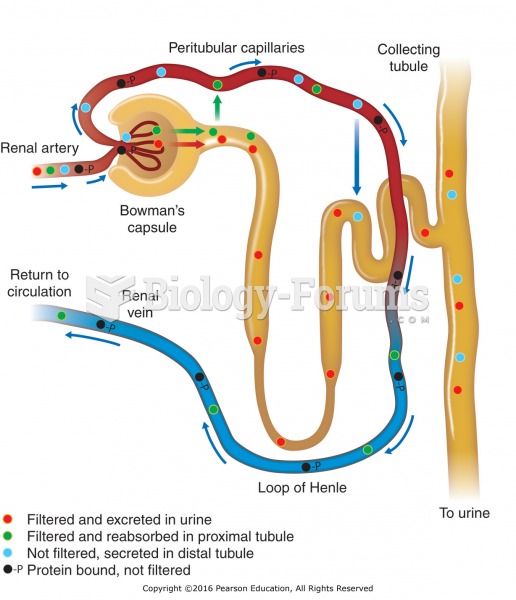|
|
|
Vaccines cause herd immunity. If the majority of people in a community have been vaccinated against a disease, an unvaccinated person is less likely to get the disease since others are less likely to become sick from it and spread the disease.
Cucumber slices relieve headaches by tightening blood vessels, reducing blood flow to the area, and relieving pressure.
Drug abusers experience the following scenario: The pleasure given by their drug (or drugs) of choice is so strong that it is difficult to eradicate even after years of staying away from the substances involved. Certain triggers may cause a drug abuser to relapse. Research shows that long-term drug abuse results in significant changes in brain function that persist long after an individual stops using drugs. It is most important to realize that the same is true of not just illegal substances but alcohol and tobacco as well.
All patients with hyperparathyroidism will develop osteoporosis. The parathyroid glands maintain blood calcium within the normal range. All patients with this disease will continue to lose calcium from their bones every day, and there is no way to prevent the development of osteoporosis as a result.
Excessive alcohol use costs the country approximately $235 billion every year.
 Arthroscopic surgery involves the surgery of a joint with the use of a flexible arthroscope and othe
Arthroscopic surgery involves the surgery of a joint with the use of a flexible arthroscope and othe
 Cataract extraction. The procedure involves a surgical removal of a cataract lens and its replacemen
Cataract extraction. The procedure involves a surgical removal of a cataract lens and its replacemen





